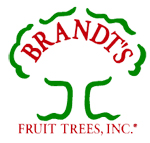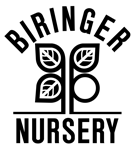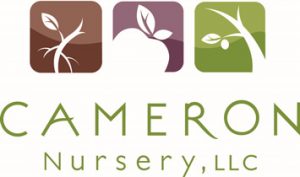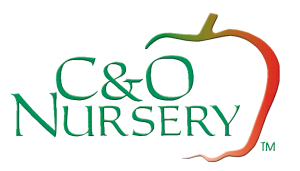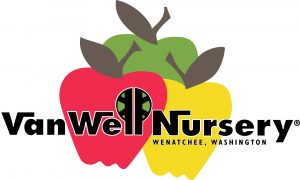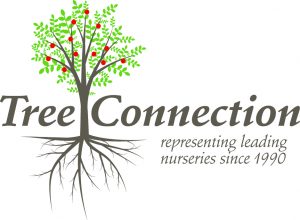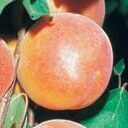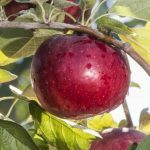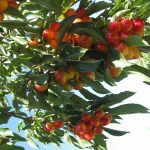About NNII
NNII evolves from nursery effort to salvage products from terminated stone fruit breeding program at Washington State University
Chelan, Selah, and Benton are site names in the state of Washington, but they are also novel and trademarked names associated with varieties of cherries. These varieties are assisting in the expansion of the cherry industry. They originated as the result of decades of breeding at Washington State University. But, except for efforts by fruit tree nurseries in the Pacific Northwest, all would have been lost to the burn pile.
In 1985, Dr. Tom Toyama, long-time breeder in the program, retired. As often is the case, the university was in the midst of a budget crunch and decided to terminate the program. Most tree fruit growers were satisfied with Bing as their industry mainstay and saw little reason for adding more varieties to the mix. However, from the nursery perspective, some of the breeding program’s advanced selections looked promising. At the urging of one nursery and with the assistance and encouragement of Dr. Ed Proebsting, a WSU horticulturist at the time, the fruit tree nurseries in Washington and Oregon formed an alliance between themselves and the university to preserve, evaluate, and market promising selections of the terminated program.
 This alliance eventually became known as the Northwest Nursery Improvement Institute, and one of its missions from 1987 onward has been to salvage, maintain, evaluate, market, and commercialize products from this terminated stone fruit breeding program. The genetic crosses had ceased a few years before, but promising selections were still being appraised at that time. Cherry, peach, apricot, and plum lines needed further evaluation and scrutiny. One of the nurseries had planted an orchard with many of the cherry lines and was able to provide commercial evaluation of production, harvest, packing, and market analysis.
This alliance eventually became known as the Northwest Nursery Improvement Institute, and one of its missions from 1987 onward has been to salvage, maintain, evaluate, market, and commercialize products from this terminated stone fruit breeding program. The genetic crosses had ceased a few years before, but promising selections were still being appraised at that time. Cherry, peach, apricot, and plum lines needed further evaluation and scrutiny. One of the nurseries had planted an orchard with many of the cherry lines and was able to provide commercial evaluation of production, harvest, packing, and market analysis.
The Northwest Nursery Improvement Institute paid for the patenting and trademarking of this material and continues to provide the necessary legal protection of those certificates. In concert with WSU’s pomologists, data were gathered for the patenting process and for providing information to the greater industry about the potential of these products. A portion of the income generated by royalties of the successful varieties pays for management of the program and applicable research. The rest is received by WSU with the understanding that it is to be used to support tree fruit research projects, including the inventor Tom Toyama’s portion, which he consigned to these same projects.
Since the inception of the alliance, three apricot, two plum, and eight cherry varieties were selected and introduced to the industry, and hundreds of thousands of dollars were generated for the university. The cherries include selections that are now branded as Chelan™, Index™, Cashmere™, Tieton™, Selah®, Benton®, Olympus™, and Glacier™. Of these, The Chelan Brand PC7146-23 cherry, which is an early maturing, firm, mahogany-colored cherry, is the most planted and has, thus far, been of the greatest benefit to fruit growers. Commercialized apricots include Tomcot™, Goldstrike™, and Goldbar™. Plum releases include Autumn Sweet™, a uniquely flavored, late-maturing, European-type variety.
 The Northwest Nursery Improvement Institute officially brought together for the first time the various Northwest nurseries that produce trees for the national tree fruit industry. This association not only provided the groundwork for evaluation and promotion of WSU varieties, it also formed the foundation by which these nurseries cooperatively solve problems of mutual interest.
The Northwest Nursery Improvement Institute officially brought together for the first time the various Northwest nurseries that produce trees for the national tree fruit industry. This association not only provided the groundwork for evaluation and promotion of WSU varieties, it also formed the foundation by which these nurseries cooperatively solve problems of mutual interest.
Research funded by the Institute includes studies to minimize the effects of bacteria, fungi, and viruses on tree production. Studies on optimizing tree harvest, storage, and transport and evaluations of promising tree fruit selections are also conducted.
Early in this century, because of another budget cut, this time federal, Northwest Nursery Improvement Institute members worked to save the network of programs that secure pathogen-free planting stock in this country. This initiative is called the National Clean Plant Network, which provides the infrastructure to assist plant propagators in securing healthy nursery stock for grapevines and fruit, nut and ornamental trees for subsequent fruit grower plantings. NNII teamed with American Hort, the Northwest Hort Council, tree fruit grower associations, supportive legislators, and the grapevine industry to secure important alliances in the successful effort to establish basic federal funding for this program critical to orchard health.
More recently, NNII and its members are assisting WSU and Proprietary Variety Management in the commercialization of WSU's new Cosmic CrispTM WA 38 cv. apple, by managing the production of propagation material and of trees for commercial fruit production.
This 30-year-old partnership between nurseries and university research spawned cooperative efforts that not only benefits these two partners but also benefits their clients, the fruit growers, which subsequently benefit the region’s economy. Through foresight and cooperation, research products are saved and information transfer and application is implemented. It is hoped that future partnerships spawn similar benefits for all.
All names associated with tree fruit cultivars in this article have patent and trademark protection.
[Based on an article published in the Good Fruit Grower Magazine, January, 15, 2006 (http://www.goodfruit.com/ )]
Member Area
NNII Members can make use of a large library of resources as well as reviewing Federal Issues impacting the industry.
What's New?
Read more about new and diverse varieties of tree fruits and the nurseries that can provide them.
Contact NNII
NNII is here to assist you in connecting with the information and research that you need for successful nursery management

